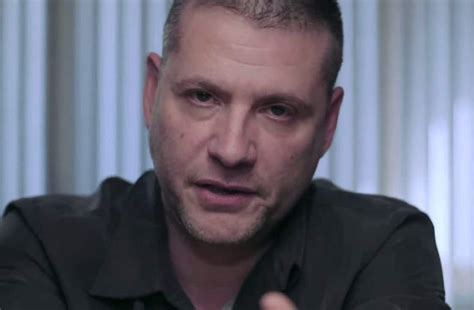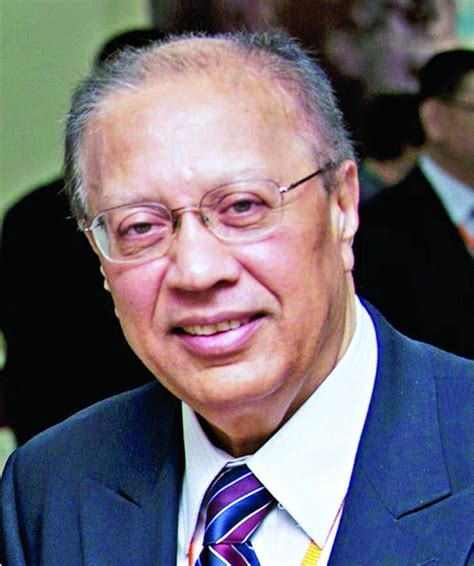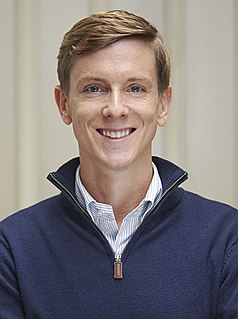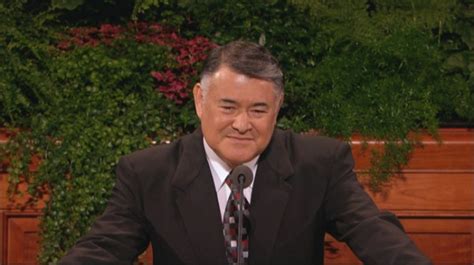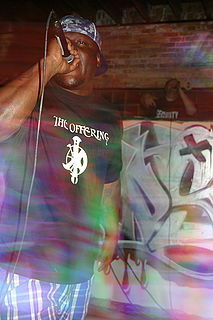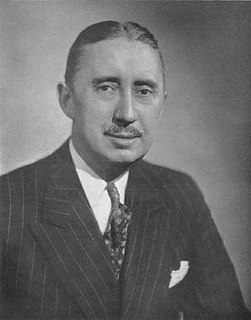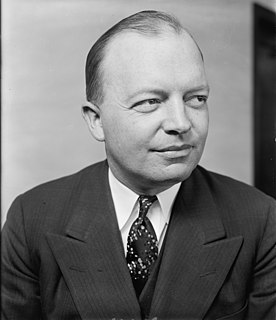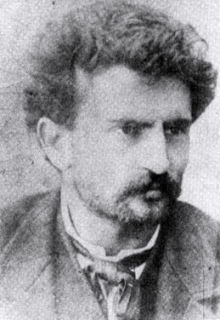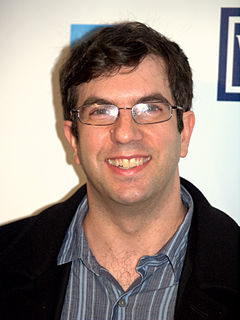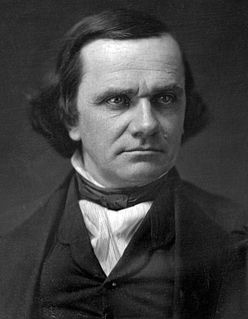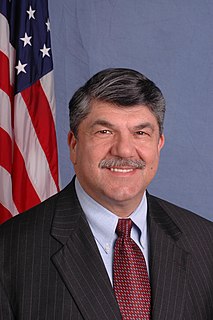Top 1200 Religious Intolerance Quotes & Sayings - Page 15
Explore popular Religious Intolerance quotes.
Last updated on April 20, 2025.
Our knowledge of the historical worth of certain religious doctrines increases our respect for them, but does not invalidate our proposal that they should cease to be put forward as the reasons for the precepts of civilization. On the contrary! Those historical residues have helped us to view religious teachings, as it were, as neurotic relics, and we may now argue that the time has probably come, as it does in an analytic treatment, for replacing the effects of repression by the results of the rational operation of the intellect.
According to my religious belief, I'm sorry if you feel like I'm pushing this on you - my religious belief is that you behave the way God wants us to behave. And that's simply love God and love one another. If we did that, there would be no need for any of the other commandments. It would be great. But in the same vein, we would have obtained paradise by that point. And it's tougher to get to paradise by that point.
Non-violence can truly flourish when the world is free of poverty, hunger, discrimination, exclusion, intolerance and hatred - when women and men can realize their highest potential and live a secure and fulfilling life. Until then, each and every one of us would have to contribute - collectively and individually - to build peace through non-violence.
We all agree that neither the Government nor political parties ought to interfere with religious sects. It is equally true that religious sects ought not to interfere with the Government or with political parties. We believe that the cause of good government and the cause of religion both suffer by all such interference.
To overcome prejudice, we can boldly speak against it and teach our children total intolerance for it. We can get to know one another; when we do so, the stereotypes that impede relationships will fall away. Finally, we can express regret to others for past prejudicial sins and ask God to forgive us and change our thinking.
The lessons of religious toleration - a toleration which recognizes complete liberty of human thought, liberty of conscience - is one which, by precept and example, must be inculcated in the hearts and minds of all Americans if the institutions of our democracy are to be maintained and perpetuated. We must recognize the fundamental rights of man. There can be no true national life in our democracy unless we give unqualified recognition to freedom of religious worship and freedom of education.
If you are really spontaneous, people will think you are mad. If you go to a tree and start talking, or to a flower, people will think you are mad. If you go to a church and talk to a cross or to an image, nobody will think your are mad, they will think that you are religious. You are talking to a stone in a temple and everybody thinks you are religious because this is the authorized form.
Whether or not we have personality disturbances, whether or not we have the ability to overcome deficiencies of early environment, is like the answer to the question whether or not we shall be struck down by a dread disease: "it's all a matter of luck." It is important to keep this in mind, for people almost always forget it, with consequences in human intolerance and unnecessary suffering that are incalculable.
If no one had ever challenged religious authority, there’d be no democracy, no public schools, women’s rights, improvements to science and medicine, evolution of slavery and no laws against child abuse or spousal abuse. I was afraid to challenge my religious beliefs because that was the basis of creation—mine anyway. I was afraid to question the Bible or anything in it, and when I did, that’s when I became involved with PFLAG and realized that my son was a perfectly normal human being and there was nothing for God to heal because Bobby was perfect just the way he was.
In its main features the Declaration of Independence is a great spiritual document. It is a declaration not of material but of spiritual conceptions. Equality, liberty, popular sovereignty, the rights of man - these are not elements which we can see and touch. They are ideals. They have their source and their roots in the religious convictions. They belong to the unseen world. Unless the faith of the American people in these religious convictions is to endure, the principles of our Declaration will perish. We can not continue to enjoy the result if we neglect and abandon the cause.
If enough people are sensitive to the tragedy of Tibet, I think it will produce a change politically as well. But furthermore, it's important for the people in Tibet. Now communication is such [that] people know what is happening. Even Tibetan people would know that the Interfaith or the international group of religious people - that everybody who is religious is taking up their cause. It would help them a lot if we give them courage, and that in itself is enough.
There are two kinds of comprehensive doctrines, religious and secular. Those of religious faith will say I give a veiled argument for secularism, and the latter will say I give a veiled argument for religion. I deny both. Each side presumes the basic ideas of constitutional democracy, so my suggestion is that we can make our political arguments in terms of public reason. Then we stand on common ground. That's how we can understand each other and cooperate.
It's not hard to look at our own world and draw parallels between 9/11, for example, and how Muslims are viewed or treated by North American culture since then. Just to see the way fear can breed hatred and intolerance for people who aren't the same as us - and that's certainly part of what's at the heart of 'Descender.'
When the Jews were being persecuted by the Nazis in 1944 we passed the War Refugee Act, which focused on rescuing Jews, a religious group. But if the religious group is the subject of the persecution based on their religion, it's perfectly OK for a First Amendment-bound society to emphasize their rescue, just as it is perfectly OK to emphasize the fact that many, if not all of the perpetrators of Islamic terrorism, come from countries with a history of supporting terrorism.
Of all ennobling sentiments, patriotism may be the most easily manipulated. On the one hand, it gives powerful expression to what is best in a nation's character: a commitment to principle, a willingness to sacrifice, a devotion to the community by the choice of the individual. But among its toxic fruits are intolerance, belligerence and blind obedience, perhaps because it blooms most luxuriantly during times of war.
I never try to be religious. I never try to be any type of religious cat. Spiritual, yes, but religion, when you get into that you get into a category where you lock yourself in and people look at you a certain way and then they become that way. Nah, I'm still an MC, I'm an MC first. People try to figure out my origin, at the end of the day it's just clever songs.
If Muslims want to take their disputes to religious arbitrators because they genuinely believe that it's a matter of great spiritual importance that they do that, they shouldn't be the only community in this country that's denied the opportunity to do that. Because the Jewish population has been entitled to take their disputes to tribunals known as the Beth Din for over one hundred years, and the Church of England is integrated into the fabric of this country, and there are ecclesiastical tribunals where religious disputes can be dealt with.
No civilisation can grow unless fanatics, bloodshed, and brutality stop. No civilisation can begin to lift up its head until we look charitably upon one another; and the first step towards that much-needed charity is to look charitably and kindly upon the religious convictions of others. Nay more, to understand that not only should we be charitable, but positively helpful to each other, however different our religious ideas and convictions may be.
The issue of religious liberty is absolutely critical. America was founded on three different types of liberty: political liberty, economic liberty, and religious and civil liberty. It's remarkable that, one-by-one, these strands of liberty are coming under fierce attack from the Left. And that's particularly ironic because "liberal" derives from a word which means "liberty," the free man as opposed to the slave. This liberalism which we're saddled with today isn't a real liberalism at all, but a gangster style of politics masquerading as liberalism.
Habit must play a larger place in our religious life. We worship when we feel like it, we pray when we feel like it. We read the Bible when we feel like it. Leaving our religious exercises to the promptings of impulse, we become creatures of impulse rather than soldiers of Christ. An army made up of creatures of impulse would be only a mob. So is a church.
There will be selfishness and greed and corruption and narrowness and intolerance in the world tomorrow and tomorrow's tomorrow. But pray God we may have the courage and the wisdom and the vision to raise a definite standard that will appeal to the best that is in man, and then strive mightily toward that goal.
Is the appointment of Chaplains to the two Houses of Congress consistent with the Constitution, and with the pure principle of religious freedom? In strictness the answer on both points must be in the negative. The Constitution of the U. S. forbids everything like an establishment of a national religion. The law appointing Chaplains establishes a religious worship for the national representatives, to be performed by Ministers of religion, elected by a majority of them, and these are to be paid out of the national taxes. Does this not involve the principle of a national establishment ... ?
Market bashers ... might understand the claim that in some particular field, markets required no intervention--though they'd be skeptical--but the notion that, on general principle, complex systems ran themselves just fine without benign intervention seemed like it could only be the product of a quasi-religious faith. ... Of course, this gets things almost precisely backwards. It is the idea that all order must be explained by a functioning mind at the helm, not its denial, that has the closet affinity to the religious instinct.
Even strong as they are today, rich countries should have no illusion: nobody is safe in aworld of injustices.War will never bring security.War can only generate monsters: bitterness, intolerance, fundamentalism, and the damaging denial of current hegemonies.The poor must be given reasons to live, not to kill or die.
Intolerance of oppression, the desire to be free and develop one personality to its full limits, is not enough to make one an anarchist. That aspiration towards unlimited freedom, if not tempered by a love for mankind and by the desire that all should enjoy equal freedom, may well create rebels who soon become exploiters and tyrants.
Way down deep the American people are afraid of an entangling relationship between formal religions - or whole bodies of religious belief - and government. Apart from constitutional law and religious doctrine, there is a sense that tells us it's wrong to presume to speak for God or to claim God's sanction of our particular legislation and his rejection of all other positions. Most of us are offended when we see religion being trivialized by its appearance in political throw-away pamphlets.
A comprehensive doctrine, either religious or secular, aspires to cover all of life. I mean, if it's a religious doctrine, it talks about our relation to God and the universe; it has an ordering of all the virtues, not only political virtues but moral virtues as well, including the virtues of private life, and the rest. Now we may feel philosophically that it doesn't really cover everything, but it aims to cover everything, and a secular doctrine does also.
One of the things that sets the Bible apart from all other ancient religious writings is its scientific accuracy. Without exception, every other ancient religious writing contains certain scientific errors. For example, Muhammad taught in the Qur'an that the sun descends down into a muddy spring. The Hindu Vedas state that the Earth is flat and triangular, that earthquakes are caused by elephants shaking themselves under it. You'll never read absurd statements like those in the Bible.
Half the people in the world think that the metaphors of their religious traditions, for example, are facts. And the other half contends that they are not facts at all. As a result we have people who consider themselves believers because they accept metaphors as facts, and we have others who classify themselves as atheists because they think religious metaphors are lies.
In some of the classes, especially the introductory religion courses I took, the professors can veer into a particular strain of religious anti-intellectualism. Professors typically aren't given tenure at Liberty, so there's pressure to hew to the party line on religious and social issues. I didn't see a whole lot of my professors encouraging critical thinking among their students. Which isn't to say that students don't engage critical thinking skills at Liberty - just that it wasn't part of my classroom experience there.
The power of the individual, market forces, and the private sector permeate our lives. With that power comes responsibility to address huge challenges. Climate change cannot be solved by governments alone. Xenophobia, hatred, and intolerance - more business leaders have to play a role in trying to be positive leaders, civic leaders.
The courts demand that every religious person must accommodate a single atheist who might be 'offended' at the favorable mention of God's name. But no atheist can be forced to accommodate a single religious person who might be offended by the atheist's unbelief, or who wants to be part of the pluralism and diversity about which liberals regularly speak, but which is not broad enough to embrace people who believe in God.
We have entered a period of intolerance which combines, as it sometimes does in America, with a sugary taste for euphemism. This conjunction fosters events that go beyond the wildest dream of satire- if satire existed in America anymore; perhaps the reason for its weakness is that reality has superseded it.
and while faith based on theological reasoning is today universally engaged in a bitter struggle with doubt and resistance from the prevailing brand of rationalism, it does seem that the naked fundamental experience itself, that primal seizure of mystic insight, stripped of religious concepts, perhaps no longer to be regarded as a religious experience at all, has undergone an immense expansion and now forms the soul of that complex irrationalism that haunts our era like a night bird lost in the dawn.
We know that silence equals consent when atrocities are committed against innocent men, women and children. We know that indifference equals complicity when bigotry, hatred and intolerance are allowed to take root. And we know that education and hope are the most effective ways to combat ignorance and despair.
In order to teach a course in the history of Western religious thought, I had to do a great deal of research in the writings within the Judaic and Christian traditions and I was astonished to find in those writings philosophical thought of great power and sophistication. These writings completely blew away all my opinions about what I had taken to be the irrationality or immaturity of religious ideas, opinions which were and still are fashionable in many intellectual and literary circles today.
Common to all these types is the anthropomorphic character of their conception of God. In general, only individuals of exceptional endowments, and exceptionally high-minded communities, rise to any considerable extent above this level. But there is a third stage of religious experience which belongs to all of them, even though it is rarely found in a pure form: I shall call it cosmic religious feeling. It is very difficult to elucidate this feeling to anyone who is entirely without it, especially as there is no anthropomorphic conception of God corresponding to it.
What other developed democracy has such a ridiculous and squalid history of intolerance? From the imprisonment and roasting of heretics, witches and poachers, to the censorship of literature, art and television: from St Alban through Wilde, Joyce and Lawrence I think we can point with pride to as grim a catalogue of intemperate, bigoted repression as any nation on earth.
We have gone a long way toward civilization and religious tolerance, and we have a good example in this country. Here the many Protestant denominations, the Catholic Church and the Greek Orthodox Church do not seek to destroy one another in physical violence just because they do not interpret every verse of the Bible in exactly the same way. Here we now have the freedom of all religions, and I hope that never again will we have a repetition of religious bigotry, as we have had in certain periods of our own history. There is no room for that kind of foolishness here.
My children cause me the most exquisite suffering of which I have any experience. It is the suffering of ambivalence: the murderous alternation between bitter resentment and raw-edged nerves, and blissful gratification and tenderness. Sometimes I seem to myself, in my feelings toward these tiny guiltless beings, a monster of selfishness and intolerance.
The issues which today confront the nation are clearly defined and so fundamental as to directly involve the very survival of the Republic. Are we going to preserve the religious base to our origin, our growth and our progress, or yield to the devious assaults of atheistic or other anti-religious forces? Are we going to maintain our present course toward State Socialism with Communism just beyond or reverse the present trend and regain our hold upon our heritage of liberty and freedom?
In Western Europe and North America some things are better than they were - at least relative to their moral nadirs - such as labour legislation, the opening of the professions to women, intolerance for domestic violence, but so much is still morally unacceptable - the weapons trade, cruel and unusual punishment, economic parasitism.
I am now speaking of rights under the Constitution, and not of moral or religious rights. I do not discuss the morals of the people of Missouri, but let them settle that matter for themselves. I hold that the people of the slaveholding States are civilized men as well as ourselves, that they bear consciences as well as we, and that they are accountable to God and their posterity and not to us. It is for them to decide therefore the moral and religious right of the slavery question for themselves within their own limits.

